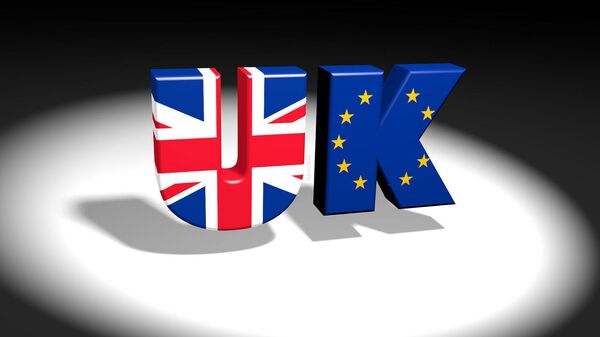The European Court of Justice (ECJ) ruled Britain was right to refuse the payment of family welfare benefits to unemployed EU nationals who have been in the UK for less than five years.
#ECJ rules that the UK can require recipients of child benefits to have a right to reside in the UK. Link: https://t.co/B0sMPtNgss
— EU Court of Justice (@EUCourtPress) June 14, 2016
The ECJ said that although the UK's actions could amount to "indirect indiscrimination," it was justified "by the need to protect the finances of the host Member State," with British government officials pledging to put an end to so-called benefit tourism.
The court rejected the position of the European Commission, who argued such actions would lead to direct discrimination against EU nationals in Britain.
Sovereignty, Immigration at the Forefront
While the decision went in favor of the British government, the court case, which was put forward by the European Commission under the leadership of former chief Jose Manuel Barroso, raised several concerns highlighted by those campaigning for Britain to leave the EU.
Chief among concerns of those pushing for a Brexit is the issue of immigration and the concerns about the potential exploitation of Britain's welfare system.
"The case in questioned was brought by the previous Barroso Commission," notes @MargSchinas of #ECJ ruling today on UK benefits.
— laurence norman (@laurnorman) June 14, 2016
While pro-EU figures, such as British MEP Catherine Bearder, described the ruling as a "landmark judgment" that justifies staying in the bloc, others have been hugely critical of what they see as a transferring of sovereignty from London to Brussels.
Prominent Brexit campaigner and former government Work and Pensions Secretary Iain Duncan Smith said it was "absurd" that the UK needed to justify its policy in the Luxembourg court.
"It's absurd that we have to run every nut and bolt of domestic policy past Luxembourg, and then engage in lengthy and expensive court battles if they decide they don't like what our democratically elected government is doing."
The panic is really setting in. Even the ECJ has decided to throw Cameron a bone. Unprecedented but cynical. #Brexit https://t.co/cARp7zZR69
— Cllr. Keith Redmond (@CllrKRedmond) June 14, 2016
"As well as the cost to taxpayers of fighting these lengthy drawn out cases, it's clearly an illegitimate challenge to our sovereignty. Although David Cameron didn't want to admit it, this case and others like it are proof positive that the unelected European court of justice is now supreme above our elected parliament. They decide the rules and the only way to prevent this kind of intervention in future is to Vote Leave on 23 June."
Decision Likely to be Used by Both Camps
The ECJ decision also comes at a critical time in the Brexit debate with Britons taking to the polls on June 23 to decide whether to remain part of the EU.
With just over a week remaining until the referendum, support for leaving the EU seems to be rising, with two polls on Monday showing 53 percent of people backing a Brexit.
Big boost for #Remain by ECJ today:UK may restrict child #benefits @britinfluence @iVoteStay https://t.co/pvi0G7tBOm pic.twitter.com/GwjY1Bmvlv
— Davor Jancic (@DavorJancic) June 14, 2016
As the campaigning sharpens in the final days, the Institute for Public Policy Research (IPPR) think tank said both 'Leave' and 'Remain' camps were likely to spin the ECJ's decision to back-up their respective positions.
"Nine days ahead of the referendum, this judgement is likely to be picked up by both campaigns. On the one hand, the judgement shows that the EU's free movement rules do not prevent member states from taking action to block access to benefits for migrants who have been in the UK for less than five years and are not economically active and cannot support themselves. It also strengthens the argument that the future reforms to free movement and welfare rules — as agreed in the EU renegotiation — will not be rolled back by the EU court," IPPR said.
European Commission says ECJ judgment 'vindicates our approach' on Brexit deal with Cameron — clarified EU law on right-to-reside
— Danny Kemp (@dannyctkemp) June 14, 2016
"But, despite the judgement going in the UK's favor, it is likely to also remind voters that aspects of the UK's welfare system are subject to EU law."



